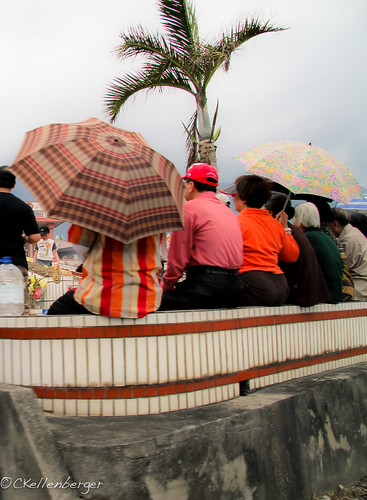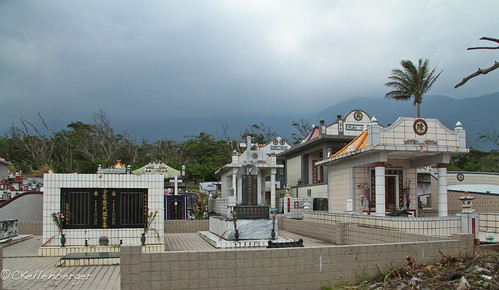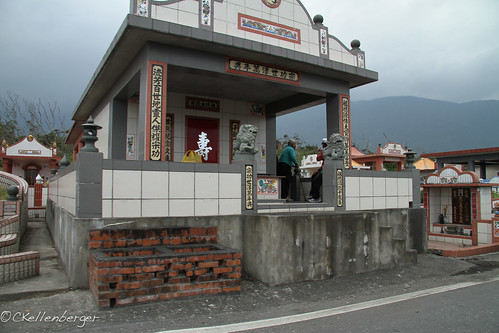
On April 4th, 2012, the often neglected hillside cemeteries and graveyards of Taiwan will become hives of activity as families prepare for Tomb Sweeping Day (Ching Ming Jie). The Chinese equivalent of Memorial Day, Tomb Sweeping Day is a day when Taiwanese families show their love and respect for their ancestors by visiting their graves. It is traditionally celebrated on the 15th day of the Spring Equinox.
The custom of ancestor worship originated in China during the Tang Dynasty and the ancient tradition eventually made its way to Taiwan. The holiday is observed a statutory public holiday in Taiwan, and most businesses and schools are closed for the day.
Tomb Sweeping Day is a designated day for demonstrating filial piety and funeral rites by cleaning the grave, burning ghost money and making offerings of fruit, food, and incense. Vegetation that has grown up and around the tombs is cut back and the tomb is swept clear of debris.
A visit to any graveyard in Taiwan on this day will reveal large groups of people scattered around the traditional family burial plots that generally belong to parents, grandparents, or even great-grandparents. The day begins with cleaning the tombs, but once that business has been concluded, food offerings are made.

The foods offered to family ancestors on this day vary from region to region, but the most common dishes in Taiwan are grave cakes such as hung kuei cakes, fa cakes, and taso tsai cakes, and jun ping, which is a type of flour roll stuffed with dried tofu, bean sprouts, shredded carrots, and bamboo meat.
As family members pray, ghost money (also known as spirit money) is burned in piles in front of the tomb to offer to the ancestors or planted in the dirt. The money isn’t real currency, though. Ghost money is made of bamboo or rice paper and it is offered to ancestors to invoke their help and guidance.
Although every family pays their respects in different ways, the rites mentioned above are generally performed prior to or following Ching Ming Jie (Tomb Sweeping Day).
Most graveyards in Taiwan or located on the outskirts of town or on hillsides. Since Ching Ming Jie falls in early April, many families take advantage of the nice spring weather to enjoy a day outside. This ancient tradition is not only an important time for families to enjoy together, but it also teaches younger generations about the importance of honoring their elders.



Canadian expat Carrie Kellenberger has kept a home base with her husband in Asia since 2003. A prolific traveler, Carrie has funded her travels primarily as a writer, editor, travel blogger and photographer, but she has also worked as an educator, voice over artist, model and nightclub singer. She draws upon her 15+ years of travel experience to write about travel-related issues and the countries she has visited on her award-winning web site, My Several Worlds.
Her photography and travel articles have appeared in both print and online publications around the world, including Travel and Leisure Asia, Unearthing Asia and Hip Compass Escapes.








